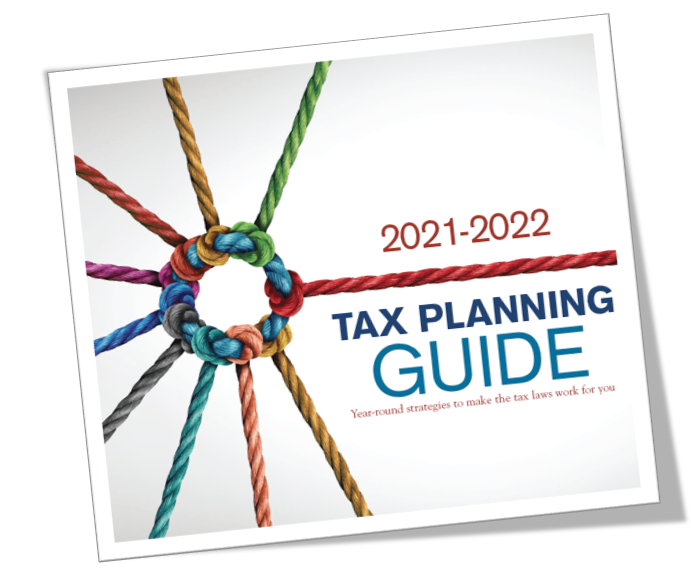After the tumultuous year that was 2020, “uncertainty” remains the watchword in 2021, especially when it comes to tax planning. The shift of political control in Washington and the evolving pandemic and U.S. economic situation could result in more tax law changes — or not.
To take advantage of all available breaks, you first need to be aware of relevant tax law changes that have already gone into effect. While major changes under 2020’s CARES Act have largely expired, some have been extended or even expanded by the Consolidated Appropriations Act (CAA), signed into law late last year, or the American Rescue Plan Act (ARPA), signed into law in March. The latter two laws include other tax law provisions as well. You also can’t forget about the massive Tax Cuts and Jobs Act (TCJA) that generally went into effect three years ago but still impacts tax planning. Finally, you need to keep an eye out for more tax law changes that could affect 2021 planning.
This guide provides an overview of some of the most significant tax law changes going into effect this year and other key tax provisions you need to be aware of. It offers a variety of strategies for minimizing your taxes in the current tax environment. Use it to identify the best strategies for your particular situation with your tax advisor, who also can keep you apprised of any new tax law developments that might affect you.
[Get The Guide]
This article is intended for educational purposes only and is not a substitute for obtaining competent accounting, tax, legal, or financial advice from a certified public accountant, attorney, or other business advisors. You should not act upon any of the information in this article without first seeking qualified professional guidance from your business advisors on your specific circumstances. The information presented should not be construed as advice or guidance from BFBA.
